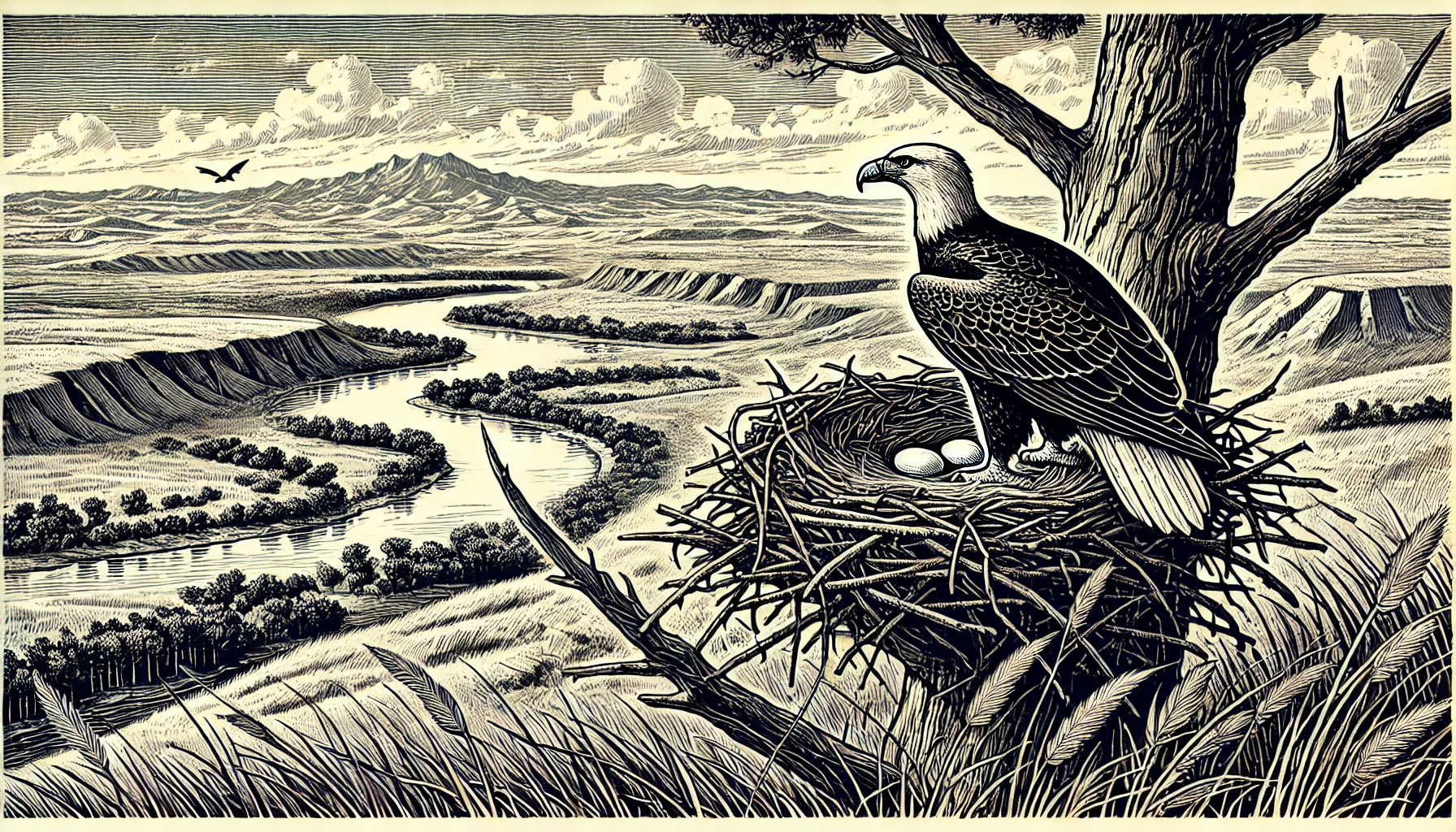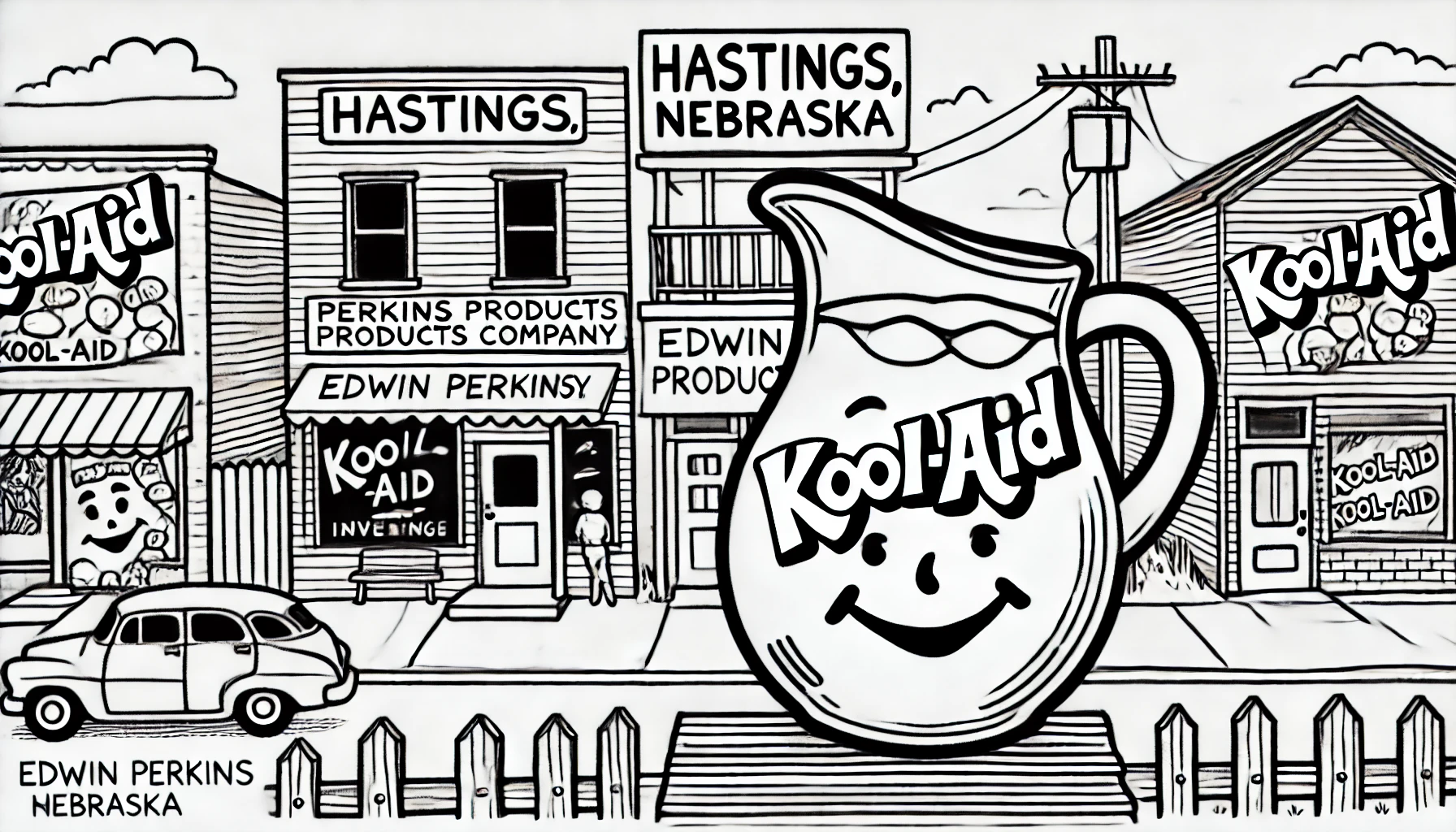Josiah Little's Emigrant Aid Society

The Josiah Little's Emigrant Aid Society, although lesser known compared to other aid organizations of its time, played a significant role in the mass migration of people traveling through Nebraska during the mid-19th century. Nebraska's central location as a major transportation hub for travelers and traders made it an important stop for many seeking a new life in the Western territories. The emigrant aid society, founded by Josiah Little, focused on providing support and resources to weary travelers crossing the Great Plains, particularly in the area surrounding present-day Omaha, Nebraska.
Little's Emigrant Aid Society focused on providing relief aid, primarily in the form of food and shelter, to pioneers who had exhausted their supplies or were facing hardships on the trail. One such example is the establishment of the Elkhorn Station, located near present-day Elkhorn, Nebraska, about 20 miles west of downtown Omaha. This station offered weary travelers a much-needed respite from the grueling journey and provided assistance in the form of medical care, repairs, and supplies. Other such stations and settlements were established throughout Nebraska, such as the one at Genoa, a village about 90 miles northwest of Lincoln, which later became an important stopping point for Mormon pioneers.
It's worth noting that Josiah Little's work in Nebraska and his aid society were not isolated efforts. Rather, they were part of a larger movement to provide support to travelers during this time. Various other organizations and individuals provided aid to pioneers, including the notable women's organizations like the New England Women's Aid to the Families of Soldiers and other settlers. This collaborative effort from organizations and local settlers underscores the immense challenges facing travelers and the spirit of solidarity among Americans during this pivotal time.
In particular, the Emigrant Aid Societies were also influenced by the early plans for the Transcontinental Railroad, which would later traverse through the entire state of Nebraska. Railroads, as a means of transportation, offered an alternative for those who could not or did not want to brave the open terrain of the Great Plains. Consequently, this plan would attract more settlers and travelers to Nebraska while still necessitating aid societies to accommodate those passing through the state.
Historical primary sources, such as accounts from pioneer diaries, suggest that organizations such as Little's Emigrant Aid Society made significant differences in the lives of many pioneers. In some instances, these societies offered much-needed resources that could have been the difference between survival and disaster for weary travelers.
Although Josiah Little's Emigrant Aid Society eventually dissolved, the aid provided during this crucial period of American History endures as a testament to the United States' enduring spirit of settlement, perseverance, and humanity.
The Josiah Little's Emigrant Aid Society emphasizes the significant efforts individuals made in supporting thousands of travelers passing through the Nebraska Territory during a pivotal moment in American History.
Researchers interested in exploring this topic further may find valuable information in personal diaries from travelers and travelers' accounts as well as existing publications covering Nebraska's emigrant aid societies.
Josiah Little left behind a lesser-known, but crucial, hallmark in Nebraska's history that demands a deeper exploration from readers.
As noted in emigration and trail histories of the United States, places such as Fort Kearny and Oregon Trail landmarks, although well-studied subjects, serve as reminders of how important roles emigrants and pioneers like Josiah Little and Oregon trail travelers themselves played in forging a stronger presence in Nebraska Territory.
Little's Emigrant Aid Society focused on providing relief aid, primarily in the form of food and shelter, to pioneers who had exhausted their supplies or were facing hardships on the trail. One such example is the establishment of the Elkhorn Station, located near present-day Elkhorn, Nebraska, about 20 miles west of downtown Omaha. This station offered weary travelers a much-needed respite from the grueling journey and provided assistance in the form of medical care, repairs, and supplies. Other such stations and settlements were established throughout Nebraska, such as the one at Genoa, a village about 90 miles northwest of Lincoln, which later became an important stopping point for Mormon pioneers.
It's worth noting that Josiah Little's work in Nebraska and his aid society were not isolated efforts. Rather, they were part of a larger movement to provide support to travelers during this time. Various other organizations and individuals provided aid to pioneers, including the notable women's organizations like the New England Women's Aid to the Families of Soldiers and other settlers. This collaborative effort from organizations and local settlers underscores the immense challenges facing travelers and the spirit of solidarity among Americans during this pivotal time.
In particular, the Emigrant Aid Societies were also influenced by the early plans for the Transcontinental Railroad, which would later traverse through the entire state of Nebraska. Railroads, as a means of transportation, offered an alternative for those who could not or did not want to brave the open terrain of the Great Plains. Consequently, this plan would attract more settlers and travelers to Nebraska while still necessitating aid societies to accommodate those passing through the state.
Historical primary sources, such as accounts from pioneer diaries, suggest that organizations such as Little's Emigrant Aid Society made significant differences in the lives of many pioneers. In some instances, these societies offered much-needed resources that could have been the difference between survival and disaster for weary travelers.
Although Josiah Little's Emigrant Aid Society eventually dissolved, the aid provided during this crucial period of American History endures as a testament to the United States' enduring spirit of settlement, perseverance, and humanity.
The Josiah Little's Emigrant Aid Society emphasizes the significant efforts individuals made in supporting thousands of travelers passing through the Nebraska Territory during a pivotal moment in American History.
Researchers interested in exploring this topic further may find valuable information in personal diaries from travelers and travelers' accounts as well as existing publications covering Nebraska's emigrant aid societies.
Josiah Little left behind a lesser-known, but crucial, hallmark in Nebraska's history that demands a deeper exploration from readers.
As noted in emigration and trail histories of the United States, places such as Fort Kearny and Oregon Trail landmarks, although well-studied subjects, serve as reminders of how important roles emigrants and pioneers like Josiah Little and Oregon trail travelers themselves played in forging a stronger presence in Nebraska Territory.
